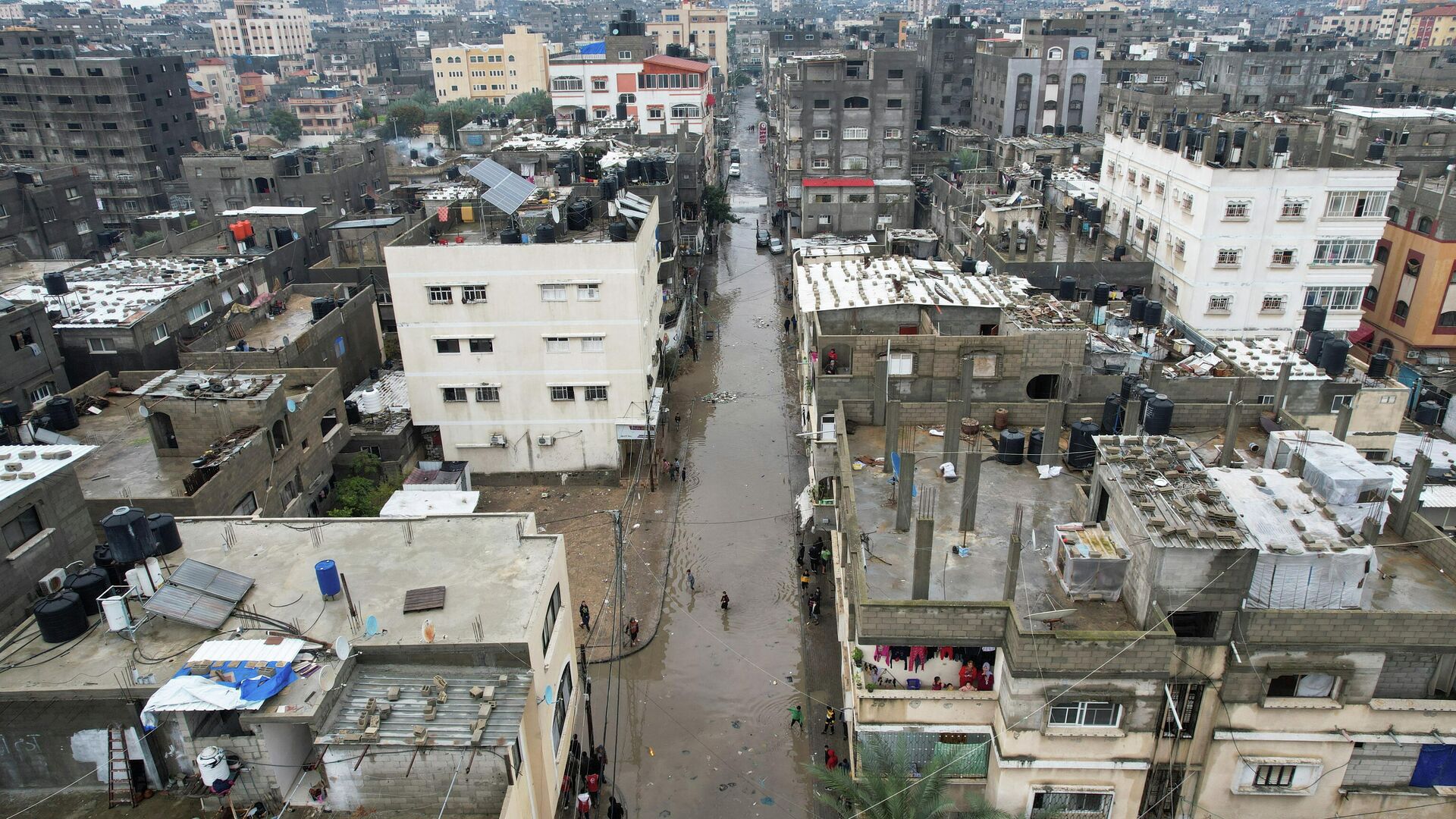As Poverty in Gaza Continues to Soar, Hamas Official Explains Origins of the Crisis
09:07 GMT 16.02.2022 (Updated: 09:22 GMT 05.12.2023)

© REUTERS / MOHAMMED SALEM
Subscribe
Poverty has always been an issue in the Gaza Strip, home to more than two million people. Yet, in recent years the coastal enclave has seen an additional spike in numbers. According to reports, poverty rates have skyrocketed, from the 43 percent registered in 2016 to 53 percent in 2021, with unemployment levels exceeding 50 percent in the area.
The Gaza Strip's rapidly growing population, military confrontations with Israel that result in destruction of the enclave's infrastructure, including factories and farms and the lack of experience among the local authorities are major reasons behind the soaring poverty rates in the region, Deputy Minister of Social Development in the Gaza Strip Ghazi Hamad explains.
Charged with improving the lives of Gaza's residents, Hamad laments that this has been a sort of "mission impossible" for years. Loyal to the ideology of Hamas, an Islamic group that he has been serving for years, he blames Israel for Gaza's hardships.
"Since Hamas won legislative elections in 2006, Israel has been imposing more and more sanctions. They disconnected the Gaza Strip from the rest of the world, they wrought the havoc of war on us and they destroyed the Strip's infrastructure, farms, and factories, pushing many into poverty".
In many ways, he is right. The 2008, 2012, 2014, and 2021 military campaigns in Gaza have devastated the enclave. They left thousands of Palestinians without homes, jobs, and hope for a better future.
Israel, for its part, has always told quite a different narrative. For Tel Aviv, it was a war for the nation's very existence, as Hamas, deemed a terrorist organisation by the Jewish state, has repeatedly vowed to destroy it.
Over the years, the Islamic group has also practiced what it preached, firing tens of thousands of rockets into Israeli towns and cities. It has built dozens of attack tunnels and carried out multiple suicide attacks within Israel, killing and injuring civilians.
To curb that threat, Israel said it didn't have a choice other than to try and tie the noose around Hamas. Israeli authorities limited what could be imported into the Strip, citing security concerns. They prevented the transfer of funds into the enclave fearing the money would end up being used for weapons acquisitions and other terrorist activity. And, aside from a few exceptions, it banned ordinary Gazans from entering Israeli territory for business and medical treatment.
The result was that the impoverished Gaza has been cracking under the pressure, its people continued to suffer but Hamas showed resilience. It hasn't disappeared. It only grew stronger.
"They all wanted us to fail. But Israel wasn't alone. Fatah [the rival Palestinian faction - ed.] wanted that too. They tried to show that we were illegitimate. They wanted to show that we were incapable of governing Gaza and providing assistance to its population", explained Hamad.
Not Free of Mistakes
The official admits that Hamas was not free of mistakes. When it took over the Strip in 2007, following a violent coup that ousted Fatah, it did lack the necessary knowledge and experience, says the Hamas official. It was void of funds and was eyed with suspicion by many regional and international players.
Today, 15 years down the line, Hamad says his organisation has managed to correct many of the mistakes of the past. "It gained experience, developed plans, and set up professional visions to improve the lives of Gaza's residents".
Hamas has also made friends. Those friendships have brought with them dividends.
"Now the Gaza Strip is getting funds from Qatar, Turkey, and Iran. It is also getting assistance from other states but I refrain from mentioning their names", said Hamad.
Foreign funds are not the Hamas government's only source of income. They also collect money from taxes as well as from international bodies that provide humanitarian assistance.
"We have been trying to utilise those resources. We put up plans in economy, education, and health. We managed to provide many services but we faced mountains of challenges".
Challenges Abound
One of those challenges has been the lack of investment and the absence of large companies to create jobs for Gazans. Another is the enclave's rapidly growing population, where around a 25 percent increase has been seen over the past decade. And a third factor has been shrinking foreign funds.
The primary reason for this has been the belief that Hamas was redirecting the funds received to acquire weapons and build tunnels. But Hamad reassures that the organisation he is part of has never taken any funds allocated for the needs of the government or people.
"Hamas and the government have two different budgets. They are not connected", claims the official.
Discussing his thoughts about the future and how Hamas is planning to improve the lives of Gaza's residents, Hamad says the future doesn't look bright. He doesn't believe there will be a resolution to the conflict with Israel, and he says the only way out for the Islamic group is to keep on fighting.
"If you think that Gazans can live in prosperity without curbing Israel, it is an illusion. We first need to cope with that monster. Then, we will think of how to build our own state".


